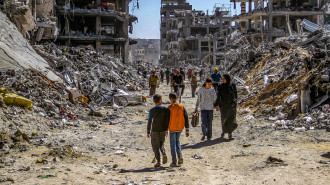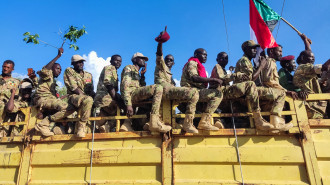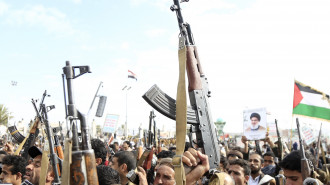Bad day for Saudi diplomacy: Lebanese reversal, Syria summit
On one side, Lebanon’s prime minister Saad al-Hariri, a Saudi ally, on Wednesday walked back his resignation, which had shocked the tiny nation when he broadcast it from the Saudi capital, Riyadh, almost three weeks ago. Some say his resignation was carried out under direct instructions from his Saudi patrons.
Also Wednesday, Saudi Arabia’s main rival, Shia power Iran, stepped into the limelight by taking part in a summit in Russia on Syria’s future.
Saudi Crown Prince Mohammed bin Salman, the son of King Salman, is seen as being behind most of Saudi Arabia’s major decisions. MBS, as he is known, is accused in some quarters of being adventurist and impulsive in his foreign policy approaches in Yemen and Lebanon, as well as in the crisis with neighbouring Qatar.
Moves by MBS to ramp up tensions with Iran, which backs Lebanon’s Hizballah, have had little success in actually rolling back Iranian influence in key counties like Iraq and Syria.
The kingdom has accused Iran of supplying Yemen’s Shia rebels with a missile that targeted Riyadh earlier this month. The missile was intercepted by Saudi defences but it was the deepest a rebel projectile had made it into the kingdom. Tehran denies arming Yemen’s rebels.
While the Saudis may have known ahead of time that Hariri would reverse his resignation, it was still seen as a public blow to the kingdom, which some in Lebanon accused of having orchestrated the Nov. 4 resignation in the first place. Many Lebanese even questioned whether Saudi Arabia had been holding Hariri against his will in Riyadh.
Hariri’s Saudi-backed political play may pressure the Shia Hizballah to limit its role in regional conflicts but the militant group is still a major force in Lebanon.
Close Saudi allies such as France and Egypt have cautioned against instability in Lebanon and spoken out against rising tensions with Iran. France’s President Emmanuel Macron’s mediation succeeded in getting Hariri out of Saudi Arabia to Paris for a few days.
 |
Despite Saudi efforts and those of others backing the Syrian opposition, no force on the ground seems capable of driving Assad out at this stage |  |
Meanwhile in Syria
As Hariri addressed thousands of supporters at home in Lebanon Wednesday, Saudi Arabia was hosting another meeting of Syria’s disparate opposition groups that have failed to coalesce and present a unified front ahead of another round of Syrian peace talks in Geneva.
The Syrian opposition remains bitterly divided.
Hours before the Riyadh meeting, a dozen opposition figures, including Riad Hijab, the head of the Saudi-formed High Negotiations Committee, resigned in protest, accusing others of being too willing to accept Syrian President Bashar al-Assad’s continued role.
In Russia’s Sochi, President Vladimir Putin was hosting his counterparts from Iran and Turkey. Though Turkey backs the Syrian opposition, it has agreed to cease-fires to reduce violence with Assad’s main backers, Iran and Russia. The three countries are all seen as the dominant players in the war-torn country.
On Monday, Assad was warmly received by Putin in Sochi. Assad’s government, whose forces have been backed by a Russian air campaign and fighters from Iran and Hizballah, now controls more than 50 percent of Syria — about a fifth more from earlier this year.
Despite Saudi efforts and those of others backing the Syrian opposition, no force on the ground seems capable of driving Assad out at this stage.





 Follow the Middle East's top stories in English at The New Arab on Google News
Follow the Middle East's top stories in English at The New Arab on Google News


